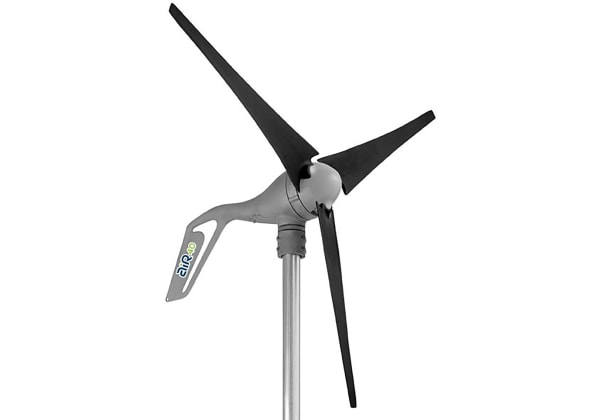- Published 11 Mar 2024
- Last Modified 8 Oct 2025
- 7 min
Smart Manufacturing and Sustainable Energy
From adopting renewable energy sources to improving energy efficiency, manufacturing is taking steps to improve its sustainability in response to the climate crisis. Read our guide to find out more.

The manufacturing industry is a major cause of carbon dioxide emissions, one of the main gases contributing to climate change. Manufacturing produces as much as one-fifth of these emissions. That makes efforts to reduce energy consumption in the sector critical in the battle against global warming.
Sustainable manufacturing processes use renewable energy, make efforts to cut energy use, get the most out of valuable resources, reduce waste, and benefit the wider community – not to mention the planet as a whole. Let’s take a closer look at the relationship between sustainability and manufacturing.
Sustainable Manufacturing
It was the original Industrial Revolution that set humanity on the path to today’s environmental crisis. Today, we expect manufacturers to play a huge role in overcoming it. Burning fossil fuels such as oil and natural gas in industry with impunity is no longer acceptable as it emits very large volumes of carbon dioxide – the principal contributor to climate change.
So, manufacturers are taking steps to reduce their carbon footprint, from using sustainable energy to power industrial processes to streamlining manufacturing and conserving energy and natural resources. They are also looking at the entire lifecycle of the products they produce – from original idea to end of life – to determine where energy or materials can be saved or resources reused and recycled. All these elements are part of improving sustainability in manufacturing, which will benefit the planet in the decades to come.
Manufacturing and Energy
Manufacturing uses a lot of energy. This includes manufacturing processes, electricity for powering automation and machinery, and the power required to light up and heat often large factories and office spaces. Indeed, manufacturing is responsible for more energy usage than many other energy-intensive industries, including mining and construction. Sectors that use a lot of energy include iron, steel, and aluminium production, along with chemicals, food and beverages, pulp and paper, and cement production.
Many manufacturers that have historically relied on burning oil and natural gas are working to cut their energy consumption by introducing energy-efficient technologies and practices and switching to sustainable energy sources such as wind or solar power, biogas, or energy from biomass or waste.
Manufacturers also have an important role to play in the energy transition by manufacturing technology for the sustainable energy industry. For example, they are ramping up production of solar photovoltaic technology and the battery energy storage systems needed to store intermittent generation from sun and wind. Manufacturers aren’t just part of the problem when it comes to climate change – they are also a big part of the solution.
Smart Manufacturing
Smart manufacturing or ‘smart factories’ are part of the fourth industrial revolution, or Industry 4.0. They rely on technologies such as the Industrial Internet of Things, Big Data, virtual and augmented reality, advanced automation (co-bots are a prime example), and artificial intelligence.
Smart manufacturing will help make manufacturing more sustainable in the long run by gathering industrial process information that informs more efficient energy usage. Enhanced collection of data across the manufacturer’s supply chain makes it much more feasible to understand the carbon footprint of the business and where emissions can be reduced. Other Industry 4.0 technologies like additive manufacturing (3D printing) are also helping to reduce waste in production as engineering companies strive for zero waste targets.
Manufacturers are working to understand the impact of all their activities on the environment and looking for ways to change things for the better – especially when it comes to energy. Smart manufacturing is providing some of the tools that will help them do this as the fourth industrial revolution progresses.
Renewable Energy for Manufacturing
Renewable energy is one of the key weapons in the fight against climate change. For example, in the UK it now accounts for about 40% of electricity generation capacity, and this figure is set to get bigger and bigger as Britain progresses toward net zero carbon emissions.
What is a renewable energy source? Its energy from nature that’s bountiful, clean, and constantly replenished. Manufacturers are using renewable energy such as wind and solar to power their facilities with roof-mounted photovoltaic arrays, onsite wind turbines, or biomass to produce heat rather than burned natural gas. Indeed, the availability of renewable power close to a plant is increasingly sought after by manufacturers who are building new facilities.
Reducing Waste
As well as adopting renewables, manufacturers are finding ways to implement waste reduction. That doesn’t just mean reducing waste of energy. It also means reducing wastage of all materials used in the production process. Waste reduction strategies include optimising production processes and using lean manufacturing techniques and other methodologies that make manufacturing more efficient, such as Just in Time where spare inventory is minimised and parts are delivered exactly when they are needed.
Manufacturers may also increase production efficiency and reduce waste by adopting new technology. For example, a new robotic system might reduce the need for reworking components, cutting down on the use of materials. Reducing waste tends to have the knock-on effect of reducing energy usage. For example, if fewer raw materials are required at a site, it cuts energy usage in the supply chain.
Energy Efficiency
Much like reducing waste, improving energy efficiency is good for both the environment and the financial performance of a manufacturing business. Lighting, heating, and ventilating large industrial spaces can be very expensive. Sustainable manufacturing examples such as measures to improve energy efficiency – using low-energy LED light bulbs or maintaining and overhauling HVAC systems – can add up to big savings and help cut the carbon footprint of the company. Some production technologies can also be made much more energy-efficient. For example, drives and motors can be replaced with the latest energy-efficient designs, which cut power consumption. Ageing machinery may also be replaced with more modern types that use less energy but have bigger outputs.
Understanding Emissions
To see where emissions are coming from, it’s necessary to think about not just a business in isolation but also its products, how they are used, and the entire supply chain involved in creating them. That means manufacturers should consider what are known as Scope 1, 2, and 3 emissions when looking at ways to reduce greenhouse gas emissions:
- Scope 1 emissions. Emissions from sources an organisation directly controls. For example, fuel burnt in running the company’s vehicle fleet
- Scope 2 emissions. These are emissions that are not the direct responsibility of the company but are a result of its requirement for energy. An example might be emissions from the generation of the electricity it uses
- Scope 3 emissions. Scope 3 includes everything else – all indirect emissions across the supply chain, including emissions related to the use of the company’s products in the wider world
Cutting Emissions
Companies looking to cut emissions should focus on Scope 1 emissions and think about how to improve energy efficiency. It’s easier to curtail emissions that are the direct responsibility of the manufacturer. Businesses can then look at Scope 2 by examining their power purchase agreements and where energy is coming from. Reducing Scope 3 emissions requires an in-depth understanding of emissions throughout the supply chain, which makes addressing these emissions a real challenge.
Smarter, Sustainable Factories
Greater sustainability in manufacturing requires commitment across a business, and a willingness to look at every aspect of how it operates. Smart manufacturing has now become an important means of achieving greater sustainability because it allows for the improvement and streamlining of processes and provides greater insight and analysis of a manufacturer’s activities. Intelligent use of data can help achieve many of the aims of sustainable manufacturing, such as reducing energy consumption. Smart manufacturing can also gather information from the entire manufacturing value chain in previously unforeseen ways to help a company understand the impact of its activities on the environment.
Sustainability in Industry 4.0
The fourth industrial revolution is a technological transformation that is affecting lots of different aspects of how manufacturers produce goods in the 21st century. Industry 4.0 technologies will not just enable manufacturers to thrive in the coming years. They are also important for meeting urgent environmental needs, whether it’s by improving energy management, streamlining processes, enabling a greater understanding of the supply chain, or using AI to keep machinery operating as efficiently and cost-effectively as possible.
The good news is that with many constraints on resources and historically high energy costs, greater manufacturing sustainability makes sense not just from an environmental point of view but in terms of the company's bottom line. The application of Industry 4.0 is fundamentally about improving the way things are done, and that can only have benefits for both environmental and economic sustainability in the long run.
Learn more about energy efficiency in industry with RS here.
Related Articles
Related links
- Trends in Smart Automotive Manufacturing
- The Industrial IoT and Smart Factories
- Powering Progress Through Innovation: Staying Competitive in UK Industry
- Fossil Fuel vs Sustainable Energy Subsidies
- Green Chemistry Electronics: Driving Sustainable Manufacturing
- What is Sustainable Manufacturing?
- food and beverage industry
- Smart Solutions for Food & Drink Manufacturing


